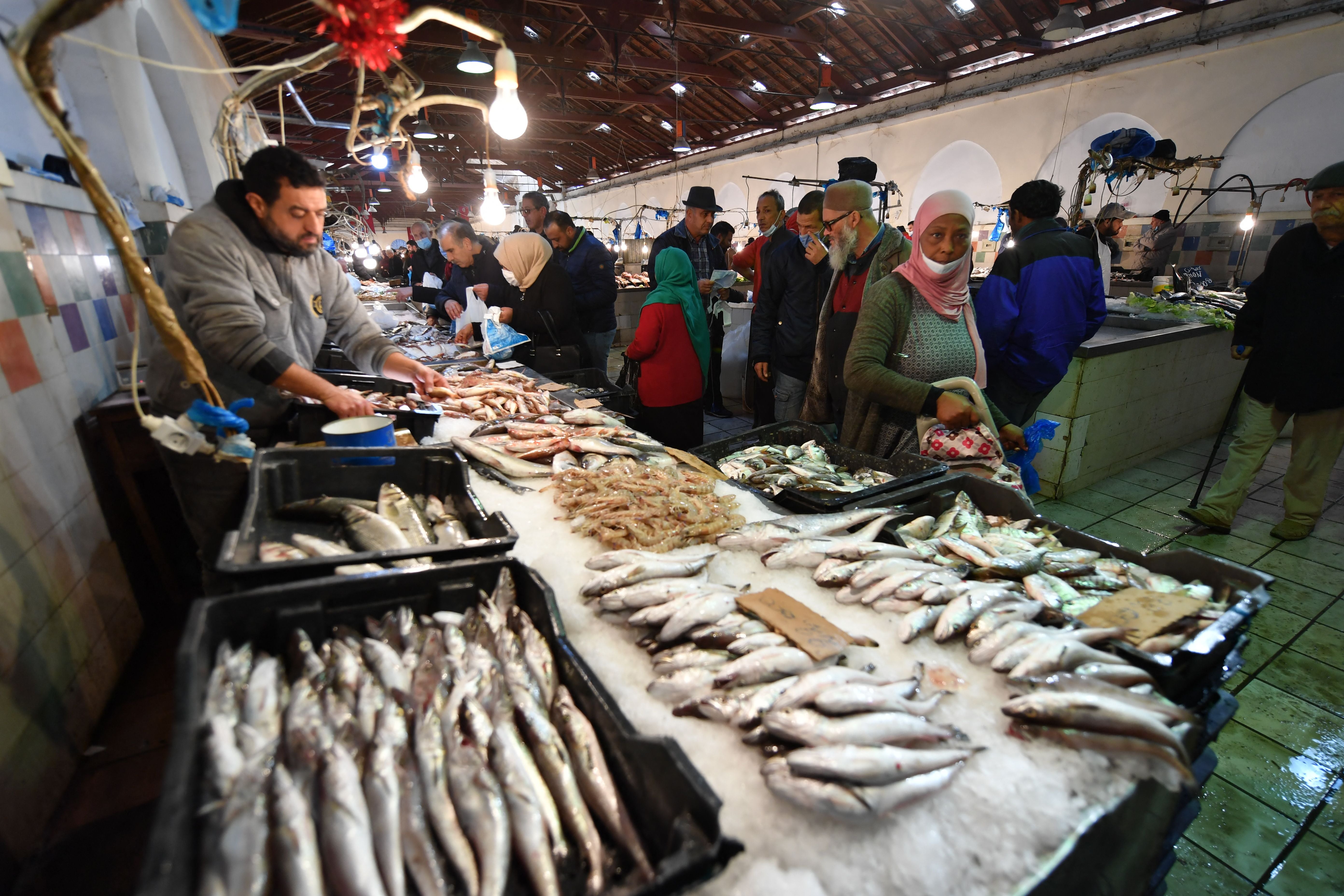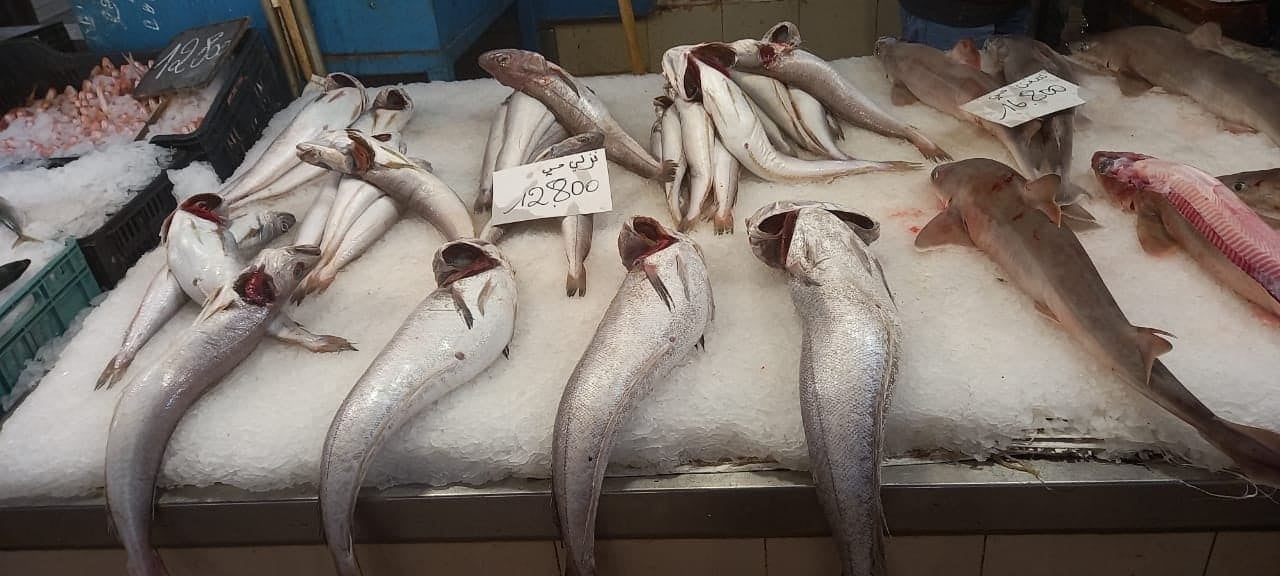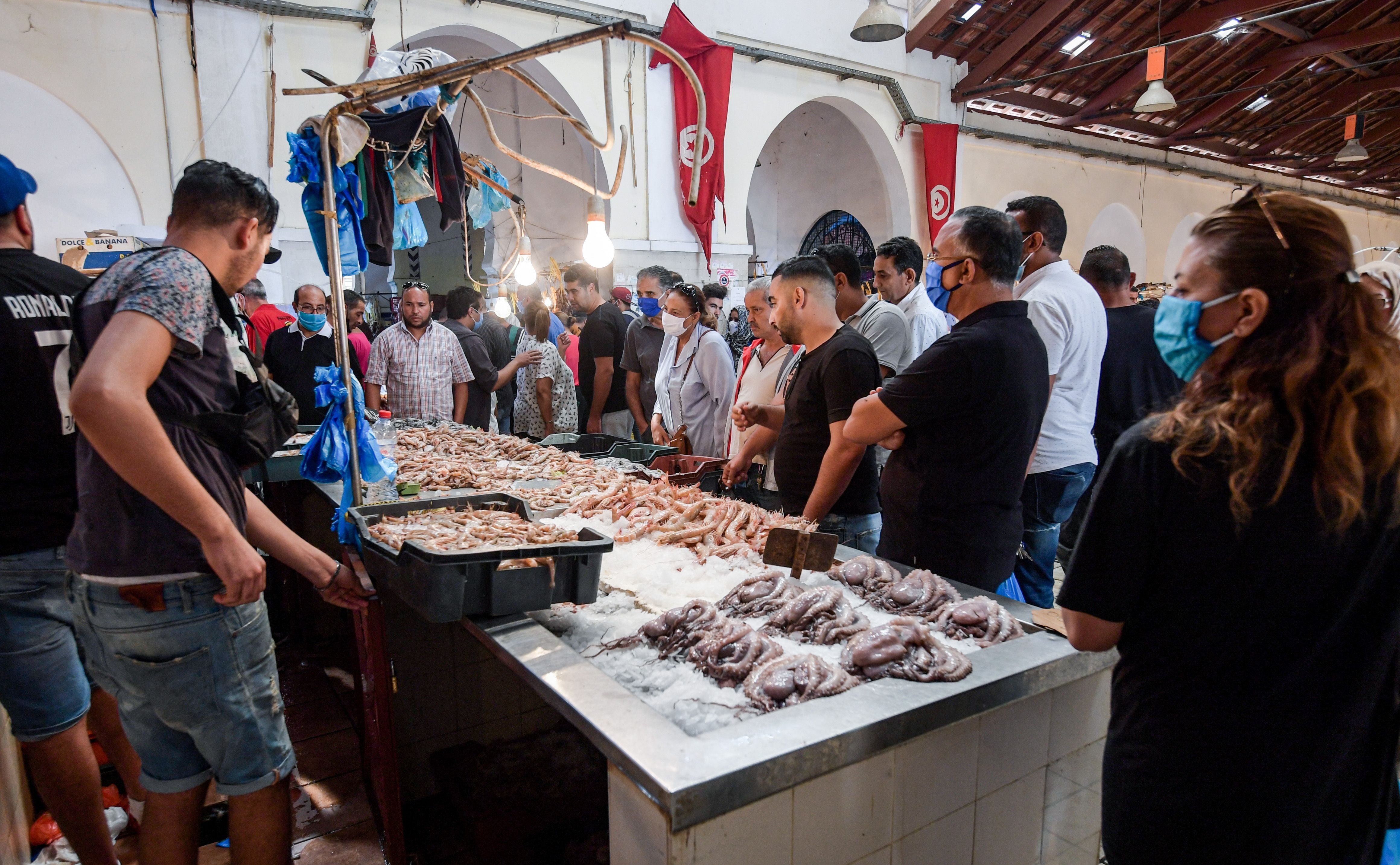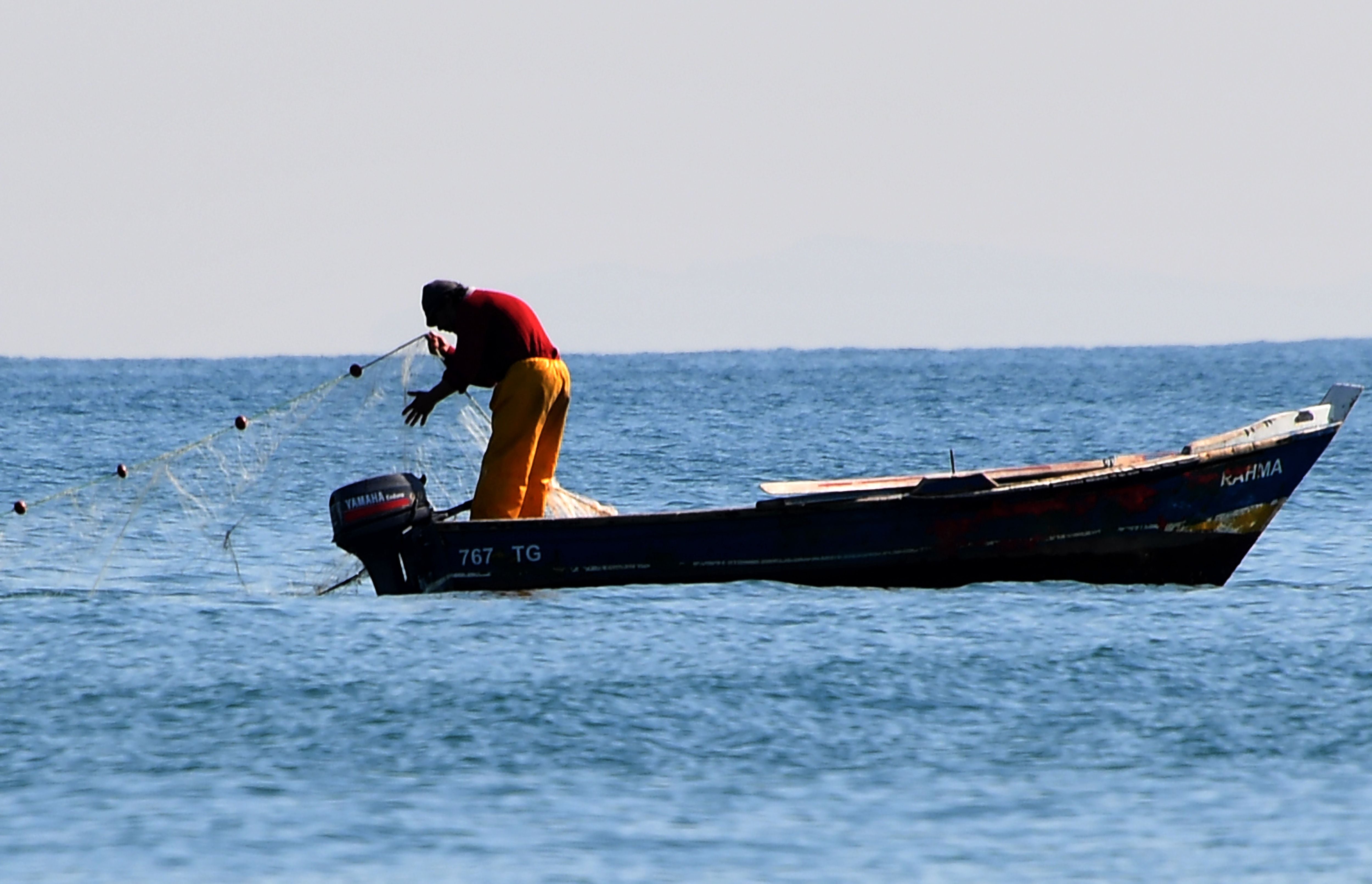Shark on sale: Why Tunisia is struggling to stop illegal fishing of endangered species
Illicit fish sales at the central market in Tunis highlight the country’s overfishing problem with several species of shark and ray under threat of extinction, reports Simon Speakman Cordall

Despite the cold, the energy in Tunis’s central market is palpable.
Stallholders shout to attract shoppers to their frozen trays of brightly coloured sea creatures with many containing the usual suspects such as octopus, mussels and prawns, but others with a more unusual offering: shark.
Shark sightings in the Mediterranean are rare. Attacks are unheard of. Nevertheless, 86 species of shark and ray make the Mediterranean their home, from the great white to the slight dogfish. Of these, 24 are under threat, with close to a third already pushed to near-extinction.
Pollution and climate change are taking a heavy toll on the numbers. But it is wilful overfishing and the unintentional trapping of sharks and rays – known as bycatch – in fishing nets that have the greatest impact on their numbers, with Tunisia, Libya, and Italy the worst culprits.
In Tunis’s central market, shark and ray carcasses are a common sight on many of the ice-covered stalls. Some are as legitimate as any of the other breeds on offer. Others, less so. To the side of one counter, a processing line of fish is on show, with the bodies of medium-sized rays being butchered, before being passed to the seller who would call out claiming it to be grouper or swordfish.
Tunisia’s waters are some of the richest in the region. Guitarfish, a medium-sized ray regarded as a rarity elsewhere, are found in plentiful numbers off the coast. And the numbers of juvenile great whites identified by researchers off the Tunisian coast suggest that adults may be breeding nearby, potentially marking out this area of the Mediterranean as one of the most precious in the world.
Sassi Alaya, 38, from Gabes in Tunisia’s south, has been hunting sharks for years. A small-scale artisan fisher, Mr Alaya heads out in his tiny wooden boat to fish for whatever he can catch that day. Shark meat has proven lucrative since he invested 24,000 dinars (£6,175) in the special nets he needs to capture sharks.
“I fish for sharks the way I fish for other fish. It’s a matter of seasons,” he said. “In spring, there are big numbers of sharks here, so if you go fishing, you can catch a good quantity and sell them for a rewarding price. Sharks get you a good price because fish meat is tasty. People like it.” According to Mr Alaya, traders at the market will pay anything between 8-15 dinars (£2-£4) per kilo, retailing it for 15-20 dinars (£4-£5) at local markets.

As apex predators, sharks have a vital role to play in maintaining the diversity of sea life within the Mediterranean. Without their presence, the fine balance of the sea’s ecosystem would be knocked out of kilter. Pressure on fish stocks across the Mediterranean is already hard to ignore. Surging numbers of fishing boats, with better equipment allowing them to stay at sea for even longer periods of time, are taking an unparalleled strain upon the Mediterranean’s sealife.
Modern trawling techniques make little distinction between marine species, meaning that a shark can find itself caught up in a boat’s nets and hauled onto the cold deck of the boat, either to be thrown back as unwanted bycatch, butchered onboard or sailed back onshore to be sold.
Tunisian law bans the fishing of 24 different species of shark and ray. But enforcement is lax or impossible to carry out at sea without the fishing fleet’s compliance. Moreover, with competition among boats fierce and fish stocks depleted, support remains some way off.

Nevertheless, identifying the sometimes small differences between protected species and those the law allows to be caught can be difficult. “You can imagine how hard it can be,” Jamel Jrijer, a marine programme manager with the World Wide Fund for Nature (WWF) told The Independent. “Sometimes the differences between species can be very slight. Telling the difference between the different types of shark and ray on a moving boat can be almost impossible.”
The answer, Mr Jrijer said, lies in both education and enforcement. “When a skipper gets his licence at one of the schools here, they need to be trained in all the different types of protected species,” he said. “Similarly, the fishing guards who are supposed to inspect every catch need better – and regular – training. At the markets, we need signs identifying the protected species. It needs to be an ongoing process."

None of this is to say that progress is impossible. Like Mr Alaya, Imed Triki is a small-scale fisher in the northern town of Tabarka, near Tunisia’s border with Algeria. “We have to protect the sea. If the sharks are in danger, our livelihoods are in danger as well, There’s a growing awareness among fishermen. It’s heartwarming to see how much people now care about sea turtles, for example,” he said, going on to emphasise the contribution organisations such as the artisan fisher association that he and others founded in 2019 can make to the preservation of endangered species.
"It gives me hope. Fishermen are realising the importance of sea biodiversity. We’re constantly learning new things about it,” Mr Triki added. Tunisia’s modern history is a tumultuous one. Over the past 11 years, it has experienced revolution, a terror attack, a withering economy and a power-grab by its president that was labelled a coup by his critics.
In the face of the country’s political and economic crises, protecting its marine heritage can seem of little consequence. But taking action to protect the rich ecosystem now will bequeath an invaluable legacy to generations to come.
Join our commenting forum
Join thought-provoking conversations, follow other Independent readers and see their replies
Comments


Bookmark popover
Removed from bookmarks